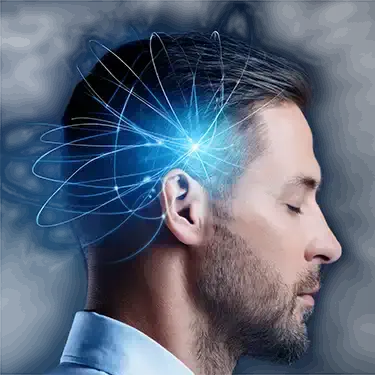When a person or family member mentions drug or alcohol relapse, we know that it simply means that the person went back to using after a period of sobriety. This could also apply to medication and any behaviour as well. In fact, it applies broadly to any action that does not support a good, healthy lifestyle.
The Oxford dictionary mentions that LAPSE is a temporary failure of concentration, memory, or judgment. When you apply the prefix “re,” which means “back” or “again,” it becomes understood that the person has gone back to their “old ways.” For a person with a past of substance abuse, they have gone back to using substances.
So, what actually happens that leads a person with some period of sobriety to relapse?

Facts About Relapses
It’s very interesting that in the field of substance abuse, whether about drugs, treatment, detox, harm reduction, private, public and so forth, many will give their objective say about it. Some professionals will be clear, straightforward, and understandable, while others will be ambiguous without a clear-cut explanation.
So much is being written and said that the average family member who is struggling with a relative’s addiction cannot decide. Research has shown a wide range of reasons for relapse. Most scientific research will conclude that specific things work as cues or triggers.
Known acquaintances related to drugs, places associated with drugs or alcohol, can cause relapse. Things such as smells, objects, etc., can be a cause. If we investigate closely, we find that there was a stimulation before the relapse. People, places, and things are but stimuli with regard to drugs and relapse. An example of this can be listening to a song that brings back sad memories, but it is much more subtle in relapse.
According to the Drug and Alcohol Foundation, there exists a range of circumstances that promote relapse. The most common reason for relapse to drugs, alcohol, or behaviours is the failure to maintain one’s sobriety goals. But again, the failure is brought on by something.
1 888-488-8434
Get immediate
help for addiction.
Failure to Maintain One’s Sobriety Goals
Here is where you find a simple lack of initiative, lack of know-how, inability to reach out, and so many other personalized issues. Each person has several qualities, but we also all have a lack of qualities.
One person can easily observe a danger, whereas another may not see it the same way. In other words, each person attempting to stay sober will face their own personal challenges.
Being invited to celebrate a close friend’s wedding and seeing others drink and toast the bride can bring about a craving. Mechanically, and somewhat unconsciously, the environment triggers a memory of drinking.
At first, it is just a memory, a thought or a picture of the past. What people
often ignored is that these memories aren’t just images. They contain more than a mental vision; they are attached to feelings, sensations, perceptions, decisions, actions, etc. The more the memory is brought up, the more these attachments are also re-experienced and become stronger.
It only takes a certain combination of these inclusions of thought to bring about action, and the reaching for a glass of wine or a line of cocaine. The result is a lapse, possibly becoming a relapse into a drug, alcohol or behaviours. There is, however, a common denominator to these lapses.
Common Denominator for Relapses
Lack of understanding of the mechanisms of the mind and its parts. That is the attached sensations, perceptions, decisions, etc., that are common to all humans.
A person may maintain sobriety from alcohol or drugs more easily when they have a good understanding and are aware of their mind and personal ability to use it.
There is nothing new in the fact that we have a conscious and an unconscious mind.
What is new is the forward research and the discovery that the “unconscious” mind records.
When a person is sober and “clear-headed,” they can do great feats. They are said to be awake and aware. When one adds drugs or alcohol, it dulls the senses. On mind-altering substances, a person becomes less aware; their senses are numbed to a certain extent.

Everything that is perceived while aware is recorded and stored for future use. The influence of toxic substances will distort, twist, and alter these records. The alterations will be stored mainly without your consent.
The unconscious IS NOT under the person’s control. The unconscious mind is unthinking and reacts to external stimuli without analysis. Thus, the impulse to use mind-altering substances even after years of sobriety.


Keeping Sobriety Goals Alive
The following is the best way to keep sobriety goals alive and in place:
- working on them each day
- staying aware of your surroundings (including people, places, and things)
- observing and determining “non-survival” actions and “pro-survival” ones
- keeping in mind that memories are just that, memories
- taking care of oneself
The smell of pot on the street is not a school yard at the age of 15. A sports bar is a bar; it serves alcohol, as much as possible.
Relapse does not need to occur. YOU CAN SAY NO and be in control. Every day, we face challenging decisions. At times, the stimuli are such that it’s difficult to see past the memory and sensations it brings, but it’s doable.
When it’s just too hard, an easy solution is to do some physical work, wash the floor, go for a healthy walk, chop wood, whatever it takes. Shift your thinking to the here and now, away from past thoughts, emotions, or sensations.
Sober living is not only possible, but many thousands live it. They have attained it. You can as well. Does it require integrity and persistence? Absolutely, and you can be drug or alcohol-free, and this also applies to behaviours!
Related Topics:
The Family and Relapse: A Guide
Ref: What is the Subconscious Mind?, The Unconscious Mind?
Back to FAQ Page

Marc Bernard
Author,
Addiction Field Specialist,
Referral & Consultation Counsellor, Ethics in Practice – NAADAC
Reviewed by Susan. Chubbs Drug and Alcohol Treatment Specialist

